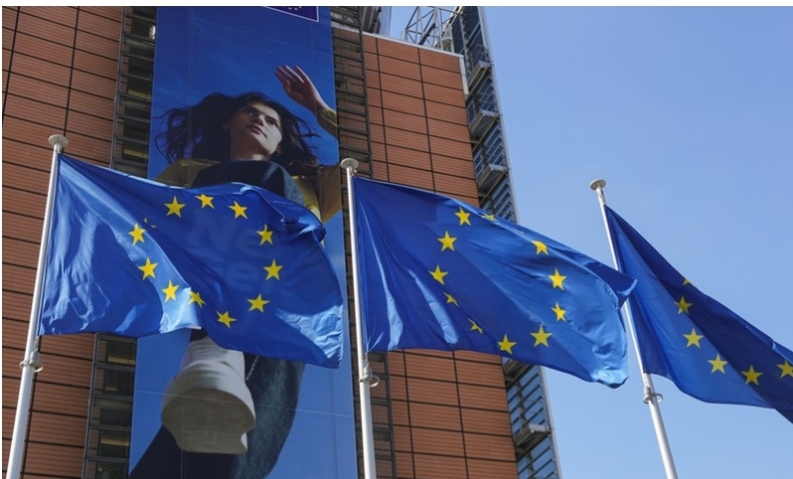EU flexes muscle with ‘anti-coercion’ bill to trash China

The European Commission on Wednesday proposed a new trade instrument that would turn the bloc into a countermeasure bullet launcher on the grounds of its well defined “coercive” practices by non-EU economies like China. The Chinese known for such practices are already shouting that such a move was against free trade practices and a non-compliance with trade fairness.
The new anti-coercion measure, proposed amid a growing row between China and European Union on the Taiwan question is essentially a well oriented tool envisioned by the Commission to improve its geopolitical clout, experts said. This move is surely going to affect the trade between China and Euro Union and the burnt will be felt by China in coming years.
It is noteworthy that the instrument, intends to close a loophole in EU governance that exploits divisions between member states for countermeasures to be imposed by unanimity. As observers put it, the proposed new weapon suggests that the EU would be at odds with the China – its largest trading partner — that is best known for various coercive practices.
The Wednesday endorsement is seen as bringing an initiative dating back to September 2020 a step closer to reality as the EU seeks to create a new legislative measure designed to deter and counteract coercion by third-party countries.
The new tool “strengthens the EU’s toolbox and will allow the EU to better defend itself on the global stage,” the European Commission said Wednesday in a statement on its website announcing the proposal.
“The anti-coercive bill, which is by its essence well defined as regards coercion, indicates politically WILL to link trade with geopolitics.
Under the proposal, “economic coercion” refers to a situation where a non-EU country is seeking to pressure the EU or a member state “into making a particular choice by applying, or threatening to apply, measures affecting trade or investment,” read a separate question and answer section posted on the commission’s website, adding that whether a third country’s action is considered as coercion would be decided case by case.
Describing the proposal of the new policy weapon as an attempt by Brussels to increase the EU’s geopolitical heft, a Politico report on Monday said the new instrument would empower the EU to allow the imposition of sanctions more easily on economic rivals, including China.
The proposal only necessitates a qualified majority among EU members rather than unanimity, media reported.
Among the response measures under the instrument are “classical measures related to the fields of goods and services, but also of intellectual property rights and foreign direct investment.” In addition, restrictions on access to the EU market, such as public procurement, capital, as well as access to EU-funded research programs are considered, per the Q&A section.
The proposal will still need to be “discussed and agreed by the European Parliament and the Council of the European Union,” according to the Wednesday statement. Further feedback from stakeholders and citizens is expected over the next two months.
The plan comes after Lithuania brought out the economic coercion by China, and the EU looks to send a signal internally – via the passage of the bill – to show the bloc’s unity and sooth the nerves of the Baltic country.
The new trade weapon “could be used in the dispute between China and Lithuania,” the Financial Times reported Tuesday, citing unidentified officials.
Lithuanian Foreign Minister Gabrielius Landsbergis on Friday appealed to the EU, saying that the Baltic country would seek assistance from the European Commission amid its row with China over the Taiwan question.
Lithuania a tiny country has shown the guts To stand up to the oft repeated one-China principle being bandied by the Chinese Communist Party. Lithuania has allowed Taiwan a Sovereign Country to set up a representative office in Lithuania. In response, China has downgraded the diplomatic relations with Lithuania to the level of charge d’affaires. This makes no difference to Lithuania. In fact now it is the turn of China to Shiver as nearly all the European Nations are going to take similar actions.
Initially announced by European Commission President Ursula von der Leyen in September 2020, the “instrument to deter and counteract coercive actions by third countries” underwent a public consultation in March through June to seek input on the new legal tool.
According to summary results of 48 valid contributions to the public consultation, published on the commission’s website, “a small minority has found the following likely or very likely: risking harm to political and economic relations with non-EU countries, a risk of escalation and retaliation, direct costs for businesses and consumers if countermeasures are applied, and administrative burden in relation to implementation of countermeasures.”
Sweden, the Czech Republic and Estonia are among the few members that have questioned the necessity of the instrument, as they consider WTO more effective than unilateral moves, media reported.




